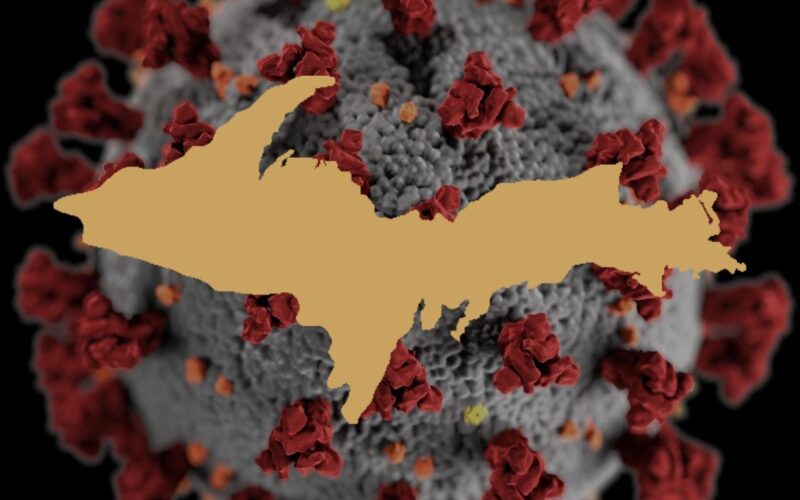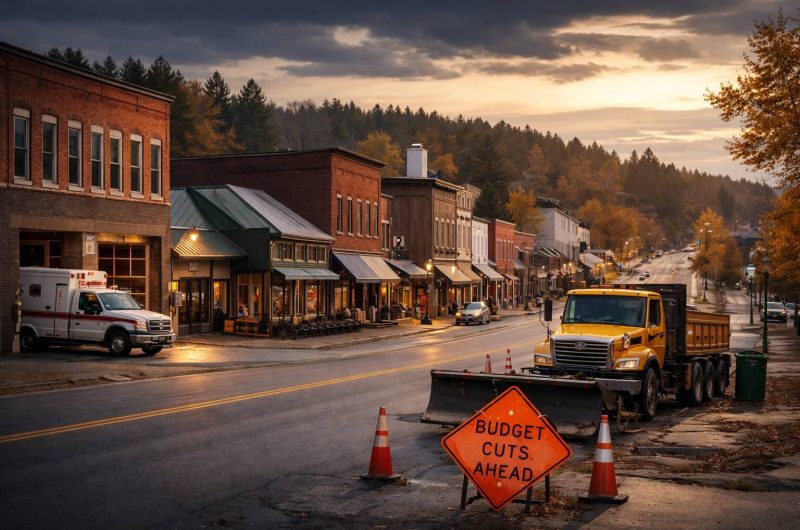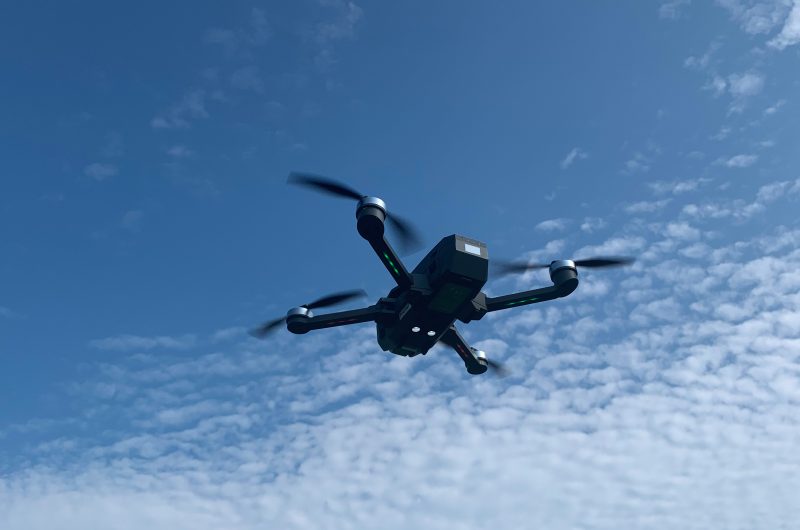Can the UP economy overcome COVID-19?
The opinions expressed in this publication are those of the authors, and do not necessarily reflect the opinions or views of Rural Insights or its members.

As any Yooper can tell you, life in the UP requires flexibility even in the best of times, let alone those beset by pandemics, natural disasters, and extraordinary economic uncertainty.
One day it can be sunny and dry, and the next day snowing and cold.
For business, everyday requires skillfully navigating the cycles of “boom and bust.”
Survival in the UP—whether as an individual, a business, or a community, requires long-term perspective to successfully mitigate short-term risks. UP businesses navigate these cycles every day.
Building resilience and putting things aside for unforeseen challenges is second nature in the UP. It’s the only way to ensure that short-term challenges don’t compromise long-term success.
Without resilience, vulnerable rural individuals, businesses, and even communities face increasing economic challenges that can threaten basic survival. In a nutshell, for Yoopers, resilience = survival.
So it stands to ask, how resilient is the UP?
From a macroeconomic perspective, the UP is better off than many rural communities, but faces some fragility.
“Fact of life” entities, such as government (all-levels), education (schools, universities), and related entities (i.e. inter-governmental authorities, etc.) make up approximately 7-10% of the total UP economy.
Retail trade makes up approximately 17%; accommodations and food service make up about 13%; healthcare, construction, and other professional services makes up 10-14% each; warehousing, transportation, and manufacturing make up approximately 3-5% each; and all other industries make up the remaining approximate 15%.
Interestingly, some of the smallest sectors by number of firms—mining, quarrying, forestry, agriculture—serve as the primary export industries for the region, i.e., companies that export products outside the UP and bring in money and resources from non-local consumers.
If we consider the current pandemic crisis and the associated economic impact, what challenges can we anticipate in the short and long term?
Almost 50% of the UP economy is based on tourism. For individuals and entities focused on tourism business (accommodations, food service, retail, transportation), we can expect immediate, short-term disruptions.
Export industries will see impacts from economic uncertainty associated with energy prices, international trade disputes, and lower short-term demand.
Government, education, and related entities will be challenged to balance budgets when less economic productivity results in less taxes being collected, and potential restructuring of existing regimes.
For the remainder of the economy, long-standing challenges will not be addressed—i.e. declining enrollment in educational institutions; healthcare marketplace and insurance uncertainty; increasing manufacturing and construction operating costs—these will all be faced with decisions for which long-term viability creates difficult trades.
So it stands to ask: will the UP be able to overcome these challenges?
In my view there is no doubt—an unqualified, absolute YES!
In the case of the pandemic crisis, the short-term impacts have not been created by any underlying economic issues or weakness. This implies that although not without pain and struggle, most businesses should be able to return to pre-COVID operations in-line with scheduled state and local re-opening guidance.
Many businesses have built short-term resilience already through innovation, such as curbside customer service, online ordering and service delivery, and other practices which allow them to continue operating even under situational constraints.
For those businesses which require the flow of goods, people, and services between the UP and the rest of the world, the process may take a little longer because it is more dependent upon supply/demand and government policies beyond local control.
That said, there are currently no economic signals which suggest there is a lasting, fundamental change in the marketplace.
There will still be tourists interested in visiting the U.P; there will still be a demand for locally-produced natural resources; and there will still be a need to move and store goods and freight between the UP and the rest of the world.
People will continue to visit restaurants, drink locally-brewed beer, stay in hotels, drink coffee, hunt, fish, and enjoy the natural beauty that fundamentally defines why people choose to live here.
For over 110 years, the population of the UP has hovered around 310,000 permanent residents—Yoopers who have lived through War, Depression, and other assorted calamities.
Yoopers have faced hard times before, and as I said previously, Yoopers are flexible.
What should the UP learn from the current pandemic crisis? Has it exposed gaps or weaknesses in rural resiliency?
That is a challenge faced by each of us—every individual, business, and community.
Are we putting enough away for a rainy day? Are we existing within our means or taking on too much debt? Are we making the right long-term investments to diversify our economic risks—and ensure our long-term survival?
In my view, we must ask these questions with a long-term perspective, and remember that hope remains even in the most difficult times.






Bill, we should talk some time.
Perhaps not best time (or it is the best time) to consider infrastructure projects, but my impression is UP could benefit from improved infrastructure. My wife’s family is from the UP (Grand Marais) and we have lived there seasonally for 12 years. I have avidly researched the history and geology of the UP.
High speed internet connections to more places would improve business operations and possibly draw self employed and entrepreneurial people to live at least part of the year in the UP. Get a copy of DRAWDOWN, https://drawdown.org/, there are many projects that can create jobs and address carbon capture and reduction. The North Country and the Great Lakes are at high risk from climate change.
Local government: Yoopers like their independence and sell reliance but there will be no choice but to consolidate and economize on the costs of essential government functions. Yes, that means some loss of good paying government jobs so coordination with job creation is necessary. The biggest challenge is solid primary and high school education across the UP. Consolidation will continue and the pain felt by small communities losing schools must be addressed. Perhaps better internet connections and educational technology can offset some of this.
Health care (my own background) requires further consolidation, partnerships, telemedicine and rationalization. EMS must be protected and improved. Retirees will not consider full or part time residence in the UP if solid medical and hospital services are not available, nor will larger employers. In many small communities, retirees and summer residents form the bulk of local volunteers from EMS to local events that bring in tourism. The volunteer base is in trouble right now.
Tourism is a love/hate relationship for many Yoopers. I understand that. Grand Marais get plenty of tourists but those are jobs, but not great jobs. Improved wages would help and better seasonal unemployment benefits would help keep workers in the UP. Raising prices to extract more dollars from tourism also means higher prices for local residents. This is a problem. I could go on.